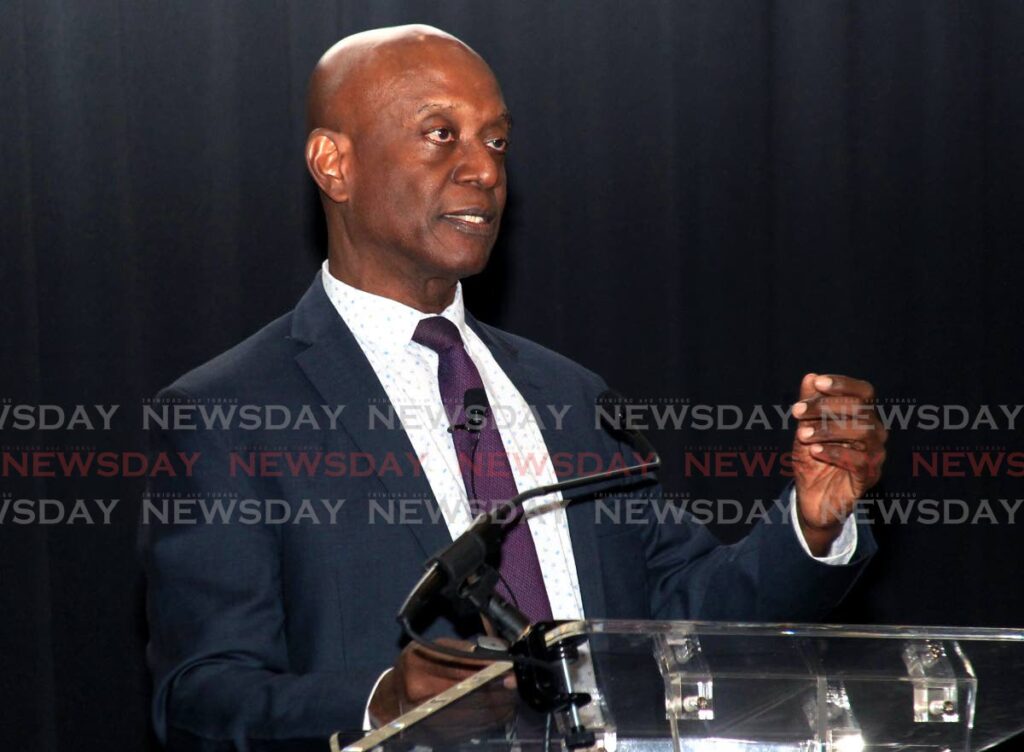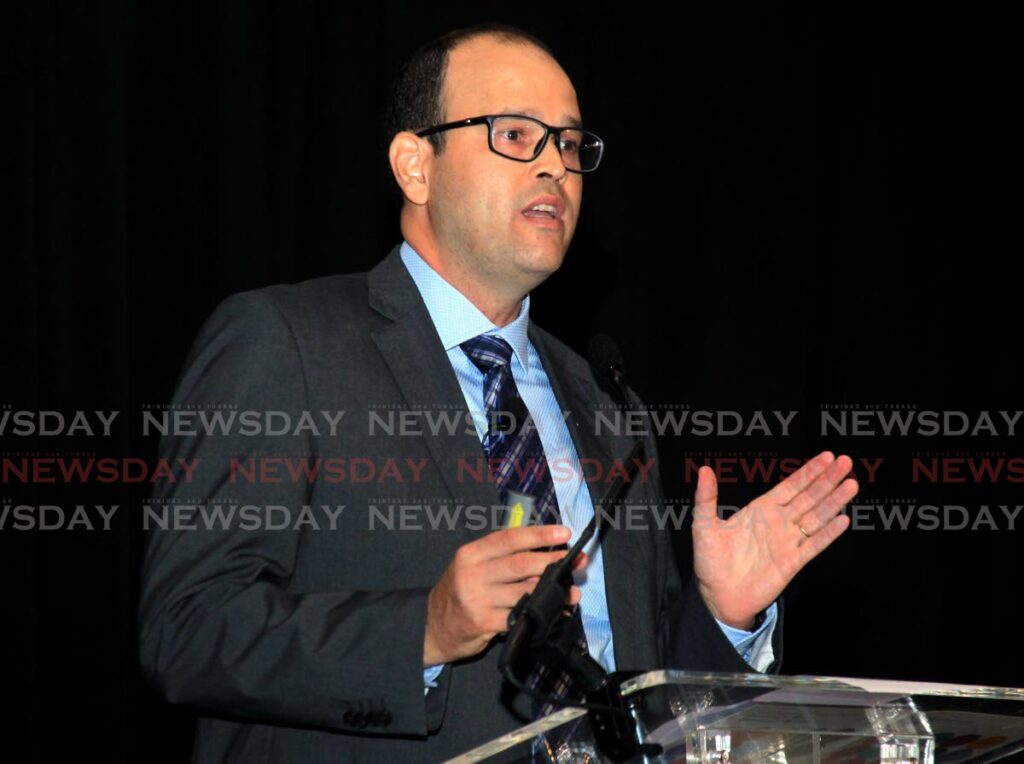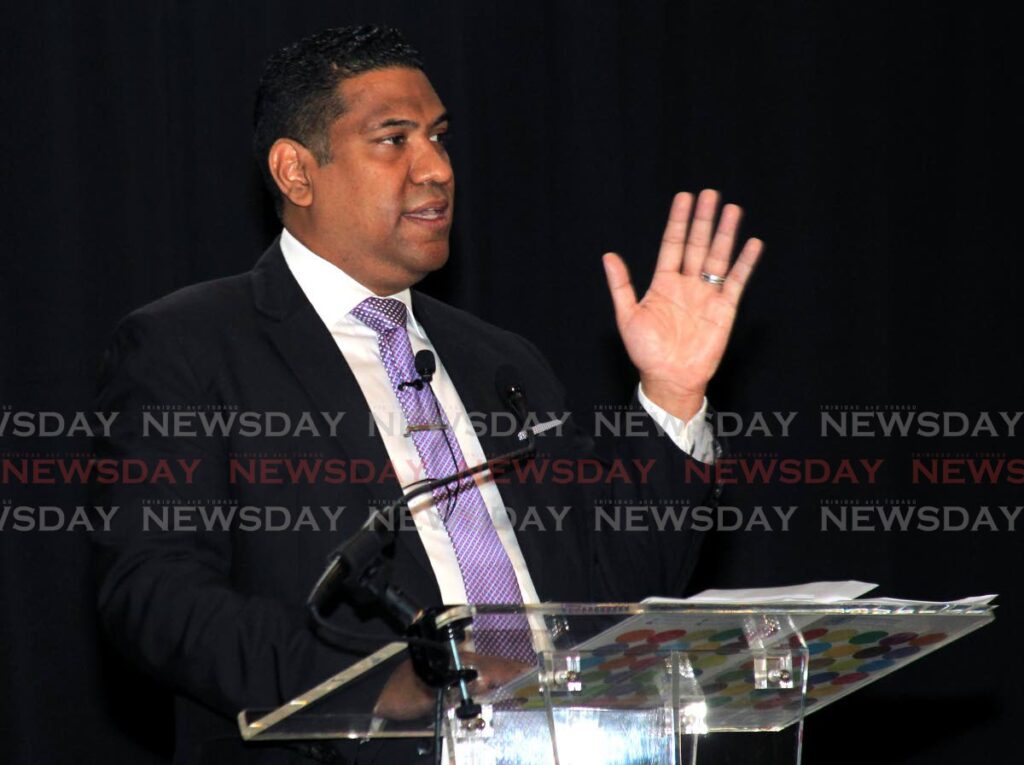Central Bank, Amcham: Local economy saved by energy sector, Trinidad and Tobago must diversify

The Central Bank of TT and the American Chamber of Commerce of TT (Amcham) have said the local economy was spared the negative effects of the global economic downturn by increases in the prices of oil and gas.
Oil and gas prices remained high throughout 2022 due to the Ukraine-Russia war, with West Texas Intermediate (WTI) oil, a benchmark used by oil markets, averaging US$95 per barrel and Henry Hub gas averaging US$6 per mmbtu. TT’s 2022 budget, presented in September 2021, was based on US$65 per barrel and US$3.75 per mmbtu.
On Tuesday, the WTI price was US$76 per barrel and the Henry Hub natural gas price was US$2.74 mmbtu.
Officials said higher energy prices cushioned the potentially damaging economic effect of low rates of foreign investments and high domestic expenditure during, and following the global economic lull triggered by the covid19 pandemic and the subsequent war in Ukraine.
UNDP Resident Representative to TT Gerardo Noto said these disruptions "led to weaker-than-expected global economic conditions and rising levels of inflation across the globe." Noto said these conditions created further challenges by disrupting the food, energy, and transport sectors, among others.
In his opening remarks at the UNDP global economic seminar at Hyatt Regency, Port of Spain on Thursday, Noto said global central banks have aggressively revisited policies on interest rates over the past year to tackle high inflation in their economies.
The seminar was a collaboration between the UNDP, Amcham and the Central Bank.
There was unison in encouraging public and private sector stakeholders and consumers to participate in opening a new kind of dialogue about the economy, where the rest of the developed world is heading and what is possible for TT.
Noto said, "Despite these efforts, inflation, in relative terms, has remained persistently high and has broadened beyond energy and food commodity prices globally and in the Caribbean.
"The transmission of high food prices is exacerbating the living costs and conditions for the poor and the most vulnerable in society, through eroding their limited purchasing power and exposing their food insecurity. These effects resonate across the different spheres of their lives, such as leading to nutritional deficiency."
He said these economic and social shifts are causing major global disruptions, as for the first time in 32 years the Human Development Index (HDI) has declined globally for two years in a row.
HDI measures a nation’s health, education, and standard of living.
Central Bank Governor Dr Alvin Hilaire said while TT is well-integrated globally, with inflation being lower than two per cent supporting a healthy financial system in 2019, the Central Bank saw where fairly substantial buffers offered a cushion to deal with possible shocks.
"Inflation soared globally on the back of supply shocks. In response, many central banks initially lowered and then sharply increased interest. While domestic output plummeted due to lockdowns, the public finances and exports benefited from higher energy prices."
Hilaire said the Central Bank, therefore, focused on supporting economic recovery and maintaining financial stability.

"Banks and other financial institutions instituted payment deferrals, rate reductions and waivers of penalty charges and late payment fees, on credit facilities."
Hilaire said the recent economic climate saw the emergence of new and improved business approaches through digitisation such as new product offerings, faster delivery times and digital shops and payment methods.
He said TT must continue working toward diversification as the global economic landscape evolves. He said diversification becomes more pertinent as, “Everybody is trying to get out of the shocks of all that has happened in the past two years. There is a vicious fight for market share. Consumers have become more footloose and impatient, so it's important for economies and businesses to get themselves properly organised.”
Agreeing with Hilaire, Ansa Merchant Bank managing director Gregory Hill said, "The UAE, for example, is diversifying, much like other islands in the region that moved toward tourism versus relying on a single industry. Sustainability will be the new profitability. Green is the new digital.”

Hill highlighted local changes in energy versus non-energy revenues in the past four years. Between the 2019/2020 and 2022/2023 fiscal years, energy revenues have fluctuated between approximately $25 billion, $27 billion and $26 billion. Non-energy revenues, in contrast, have seen a dramatic increase from $7 billion in fiscal 2019/2020 to over $29 billion. However there was no indication of which sectors contributed, and in what part, to the exponential increase over the past few years.
While TT and the region experienced some economic growth amid the challenging climate, this came at a cost.
Country economist at the Inter-American Development Bank Victor Gauto said, "Loans to countries in the Caribbean increased since the pandemic as high as $US1.2 billion in 2022."
He said purposes varied from supporting the health sectors of islands with infrastructure and technology, and aid for small and medium enterprises as part of the IDB's global response plan.


Comments
"Central Bank, Amcham: Local economy saved by energy sector, Trinidad and Tobago must diversify"